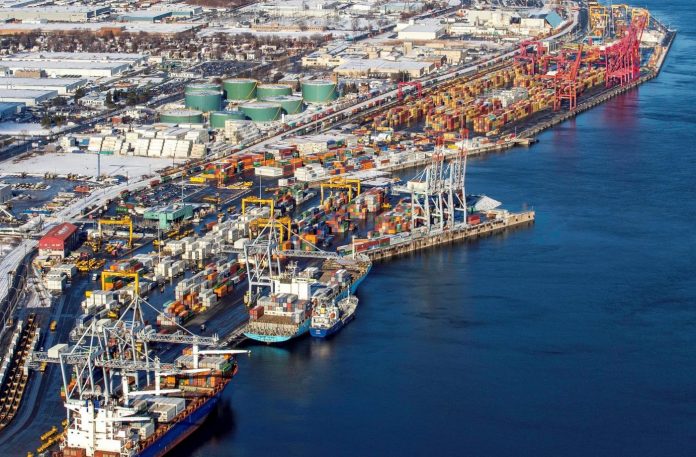CUPE 375, the union representing longshore workers in Montreal, eastern Canada’s largest port, has issued a 24-hour strike notice, running from 7 am local time on 27 October, to 6.59 am (local time) on 28 October.
The strike comes amid an ongoing industrial action that started on 10 October. An earlier three-day strike, which disrupted operations at the Viau and Maisonneuve (Termont) terminals, ended on 2 October.
The union has, so far, failed to reach rapport with the Maritime Employers Association (MEA) concerning a collective agreement, after the last such pact expired on 31 December 2023.
Vessel-tracking data from S&P Global shows that just eight container ships remain bound for Montreal in the coming week. These are MSC Anya, MSC Celine, MSC Levina III, MSC Sena, Hapag-Lloyd’s Genoa Express and Ontario Express, CMA CGM-operated EM Kea, and OOCL St. Lawrence.
In a statement issued on 24 October, MEA expressed regret at the latest industrial action.
The association said: “These pressure tactics applied by the union have created significant operational problems, which are in addition to a number of obstacles that are seriously affecting stability and reliability at the Port of Montréal as well as in the Québec and Canadian supply chain.”
MEA appealed to the union to consider the impact on Montreal port, which has seen declining container volumes since 2022. In 2023, Montreal processed 1.5 million TEUs, down from 1.7 million TEUs in 2022, as more volumes were diverted to the US East Coast.
On 15 October, Minister of Labour and Seniors Steven MacKinnon proposed to appoint a special mediator so the union and MEA could resume negotiations, free from pressure tactics from either side for a 90-day period.
The MEA said it has given this proposal serious consideration, saying, “Unfortunately, there was no agreement on the appointment of a special mediator and he (the minister) withdrew his offer.”
After 35 mediation meetings over 15 months, it is clear that the parties are still gridlocked.
MEA said: “The manufacturing, automotive, agricultural, pharmaceutical and construction sectors depend on the Port of Montreal, meaning that thousands of workers and small and large businesses suffer as this situation drags on.
“In this situation of continuing uncertainty, reaching an agreement as soon as possible is crucial to start rebuilding the Port of Montreal’s reputation and, incidentally, reestablishing cargo operations. Without lasting industrial peace, clients will continue to go elsewhere and many will not return, preferring more predictable and stable solutions. We firmly believe that the best agreements are reached between the parties at the negotiating table.”
Martina Li
Asia Correspondent







